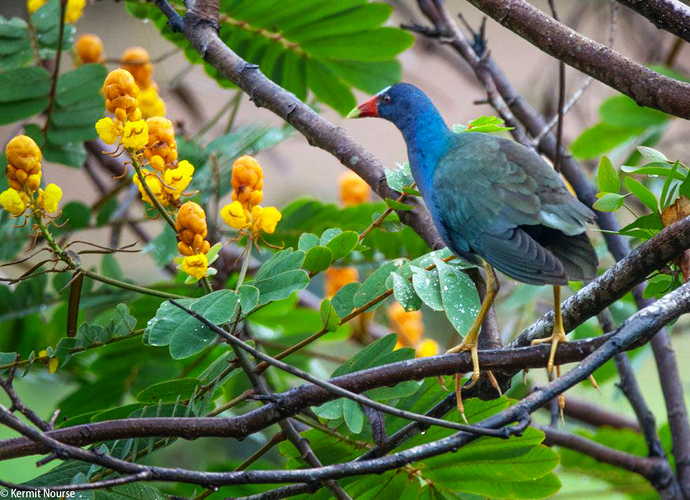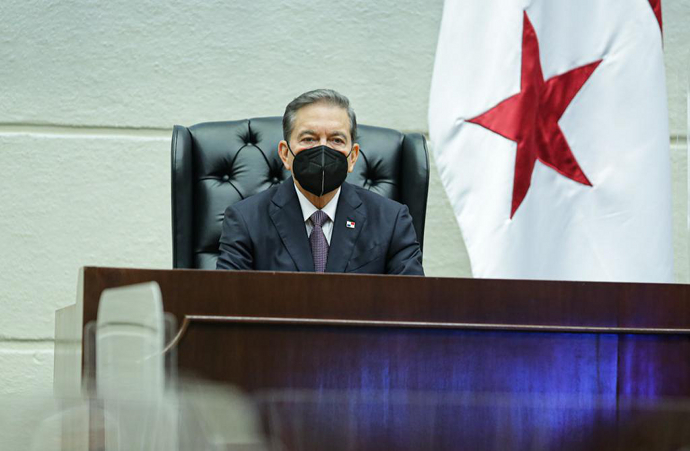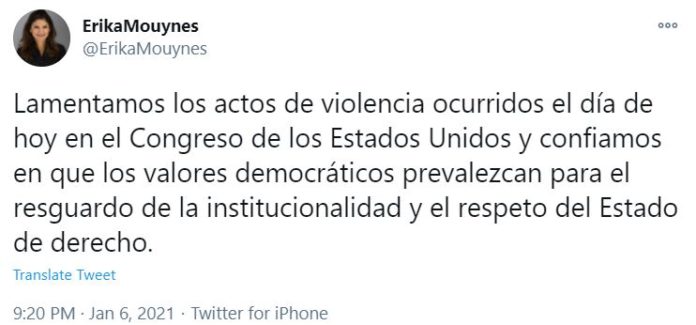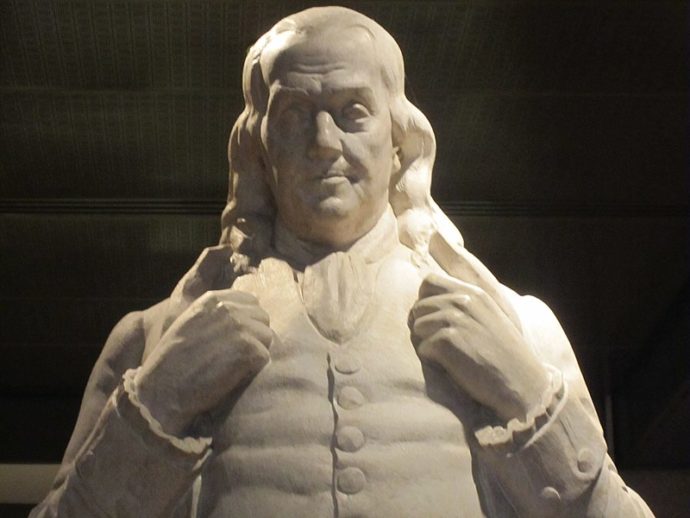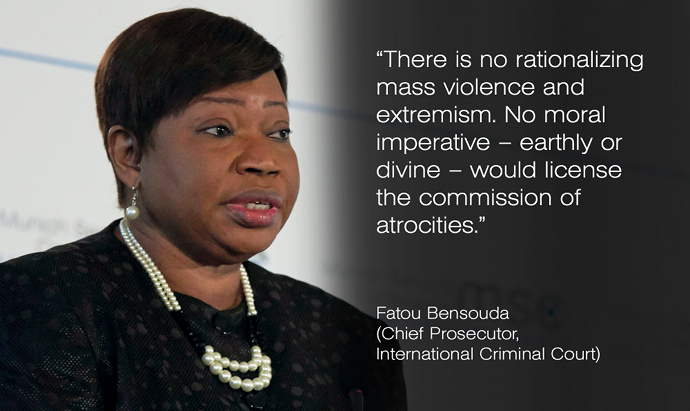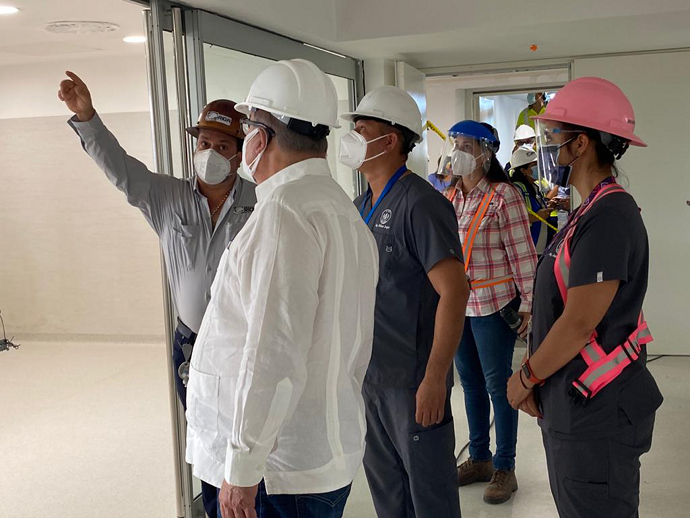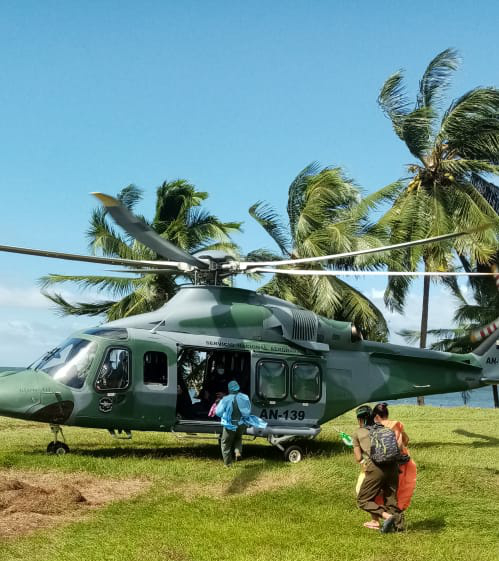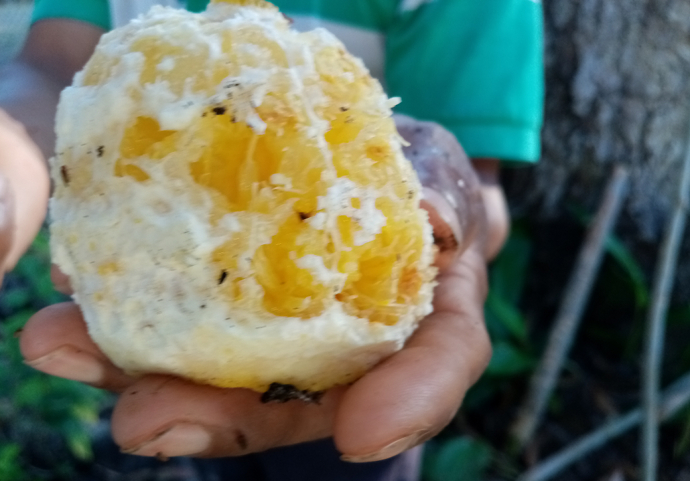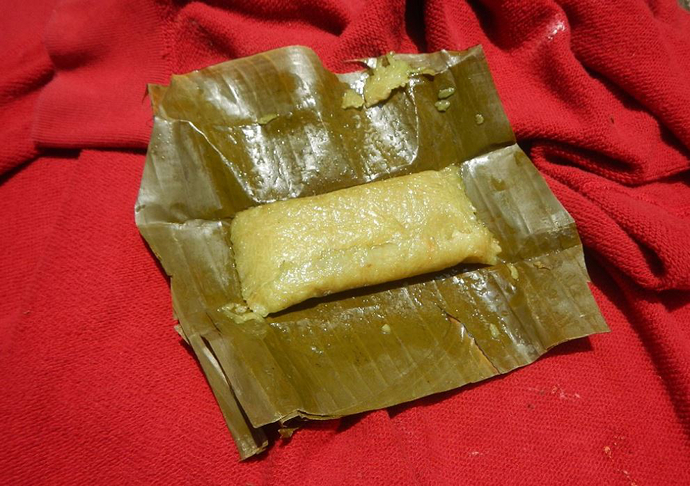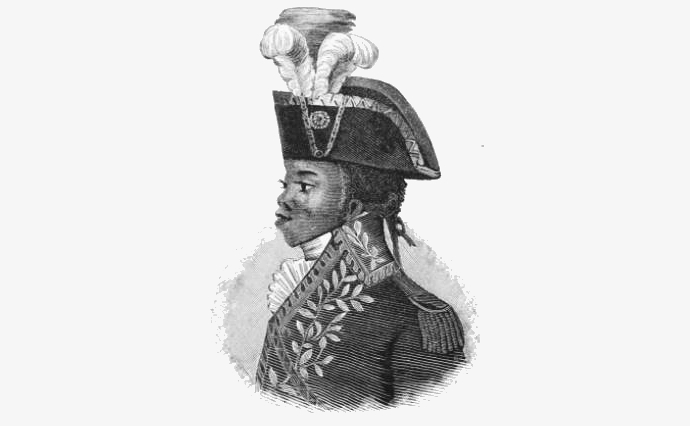President Laurentino Cortizo Cohen. Photo by the Presidencia.
The only victory that matters is Panama’s
by President Cortizo, January 2, 2021
Your Excellency, Marcos Castillero, President of the National Assembly.
Your Excellency, José Gabriel Carrizo Jaén, Vice President of the Republic and Minister of the Presidency.
Ministers and Vice Ministers, Deputies and Deputies.
Religious Authorities, Media.
Panamanian people,
Once again I come to this place to render accounts to the nation.
As a human being, as a Panamanian, I want to begin this report by expressing to each one of our brothers and sisters who has lost a loved one in this battle, that we feel as our own the pain and emptiness that they suffer today because of their loss.
I know that in many cases they could not even say goodbye, and that there are still many families who have one of their own fighting for their lives.
As president, believe me, it is the hardest, most difficult daily burden I have to bear in my work, because their sadness, their mourning, are shared within the Panamanian family. We are all children of the same country, part of a same fate, sharing the deepest and most devastating health, social and economic crisis that Panama has experienced.
Ladies and Gentlemen,
This report to the nation, which is up to me to render at an extraordinary moment, will be different. It will mark the differences between the commitments made and the promises kept; the enormous efforts we make to find the best balance between health, social and economic needs; and the percentage of implementation of the 2020 budget.
Talking about that balance may seem easy, but finding it requires prudence, responsibility, and a cool head. It is a process that involves observing the behavior of the virus, analyzing the situation, proposing decisions, and in the end, as president, deciding the action or actions to be carried out.
Panamanians,
In my inaugural address, I pledged to carry out 14 priority actions, which were to be carried out in the first months of this government.
All of them were fulfilled:
• We presented to this Assembly, in the month of July 2019, the proposal for a new constitutional order, as I promised in the campaign.
• The Public Procurement Law was approved, which reduces the discretion of public officials.
• The Law of Public-Private Associations was approved, for good investments and generating jobs.
• We execute the Austerity with Efficiency Program.
• The Glass of Milk Program already uses 100% national products.
• We are executing the Study Without Hunger Program, with the purchase of Panamanian products.
• We created the Ministry of Culture.
• The investment attraction and export promotion agency, ProPanama, already operates in the Ministry of Foreign Affairs and in this legislature the draft law will be presented to create the ProPanama Investment Attraction Authority, thus consolidating all efforts to bring good direct foreign investments.
• We created and is running, since August 3, 2020, the Banca de Oportunidades program.
• We established the Plan Manos a la Obra — a jobs program at the district level, for the maintenance of road infrastructures – which has been and is underway.
• A law that exempts the payment of the transfer tax for the current inventory of houses was approved.
• A law that extends the preferential interest for homes from $120,000 to $180,000 was approved.
• The Real Estate Leasing Law was approved to facilitate the acquisition of homes by young Panamanians.
• We created the Unit for the Competitiveness of International Services.
I also announced, that July 1, that we would begin to manage the financing for the late payments to state suppliers and contractors, and I promised to present to the Panamanian people complete information about the real state of public finances, which was never given to us.
Ladies and Gentlemen,
Last year, in this same room, we denounced the serious financial situation of the state, which we encountered once in the exercise of government.
The truth is that in the last two governments, without a pandemic, public debt tripled; it went from $11 billion to more than $30 billion. In other words, those governments increased their debt by $20 billion, without having to take emergency action.
Panamanians,
The matter does not end there. Hence the importance of emphasizing today condition of the country we received:
First, we assume the government with a deficit in the 2019 budget, for $2.317 billion.
Second, we found $1.836 billion in accounts payable to suppliers and contractors, health workers, teachers, agricultural producers, preferential interest banks and the Social Security Fund.
Third, we were responsible for canceling $1.155 billion in expired bonds, issued by past administrations.
Only those debts not contracted by our government amounted to $5.308 billion and to face that it was necessary to resort to external debt because Panama does not have a central bank.
This, together with budgetary austerity measures, allowed us to put the house in order, in eight months. So much so, that by February 2020 current income had increased 11% above what was projected.
In other words, in the first eight months of our government, the country began to show signs of economic recovery, but the pandemic took us off that course, bringing a drastic reduction in current income.
Panamanian people,
In effect, this government has managed $7.776 billion of credit resources, according to estimates by the Ministry of Economy and Finance, which made it possible to finance the fall in income, below budget, by $3 billion and to face, in the state budget, $1,696 million to pay down debt, maintain the subsidy programs and make conditional cash transfers of $1.651 billion.
And the difference of $1.417 billion, plus the reduced current income, is what has allowed us to meet the needs of the health system, due to the effects of the pandemic, the Panama Solidario Plan, the digital vouchers and the food bags aid for victims of natural disasters.
In that sense, putting the house in order facilitated the negotiations with the international financial institutions and the banks, to have funds to attend first to the national emergency of the pandemic, then the consequences of the hurricanes.
Ladies and Gentlemen,
I would prefer to refer only to the present, but it cannot be forgotten that we received the country with monumental problems. And in March the unforeseen happened: a devastating world catastrophe, without warning, settled into our lives, bringing uncertainty, pain and mourning.
Now, with the pandemic, our country faces the biggest problems in our entire history.
Panamanians,
From the first signs of the pandemic, our government was at the forefront of this battle, in which difficult decisions have to be made. Trying to find a balance among health, social welfare and economic activity in a catastrophe like this, there are no perfect decisions.
Until recently, October 31 of last year, and with 100% of the people on the street, we had 9.6% positivity, single-digit positivity. That is, out of every ten thousand tests, a thousand came out positive.
However, two months later, due to the change in social behavior due to November’s national holidays, beaches, shopping, Mother’s Day, end-of-year holidays, positivity more than doubled, that is, for every ten thousand tests, 2,500 test positive. The number of deaths has increased considerably.
This undeniably critical situation led us to take strict measures that are in force until January 14.
Let us understand that there can be no health without economy, but neither can there be economy without health.
Ladies and Gentlemen,
We can continue increasing the tests, increasing the unified traceability teams, the rapid response teams, adapting new infrastructures for more beds, as is in fact being done.
We can hire more Panamanian health personnel and hire foreign doctors, but as long as the social behavior – the behavior of each one of us – does not improve, the figures will not improve either.
I say it again, talking about sustained economic recovery with the current social behavior of some Panamanians is not realistic.
The future of this new year is in the discipline and conduct of each one of us. From today, that behavior will write the blank page of 2021.
Panamanians,
On the other hand, and in the social sphere, our government took on the challenges imposed by the pandemic with responsibility and decision, implementing different initiatives to help Panamanians cope with the crisis, keep the greatest number of jobs and support, to the extent of our possibilities, to the most vulnerable.
The following initiatives are worth highlighting:
• The Panama Solidarity Plan, which consists of the delivery of food bags, mega bags for the regions, vouchers and digital vouchers. This program benefits around 1.7 million people and is carried out by a national team of almost 7,000 collaborators and volunteers.
• To date, 4,784,495 Solidarity Bags have been delivered, for a total of $113 million.
• 3.1 million bonds, worth $294 million, have also been delivered, and
• 7 million digital vouchers credited to the cedulas, with an assigned value of $587 million.
• The Panama Solidarity Plan was awarded the Excellence Award from the Electronic Government Network of Latin America and the Caribbean, organized by the OAS and the Inter-American Development Bank, in the category “Digital Government Against COVID-19”.
• In addition, Panama was the first country to use the personal identity card as a debit card, through the implementation of the digital voucher.
Ladies and Gentlemen,
I reiterate that from January 4 to 8, the digital vouchers for the provinces of Panama and Panama Oeste will be recharged.
I also announce that, as of Monday, February 1 of this year, the digital voucher at the national level will be increased from $100 to $120, conditional on compliance with the rules established by the health authorities.
On the other hand, the Tripartite Dialogue Table convened by the government and recognized by the International Labor Organization as the only one on the continent, culminated in 22 agreements, respecting the rights of workers and promoting the reactivation of companies, achieving a safe and reliable route to improve working conditions during the pandemic.
Panamanians,
The truth is that, as with previous pandemics, the solution comes from the hands of science through the development, in record time, of vaccines.
Look: Panama’s case, through thick and thin we have been advancing and thank God we are lacking less. In the course of 90 days we will begin the vaccination process in an orderly fashion.
We have committed $56 million to acquire 5,500,000 thousand doses of the vaccine. Panama is ready. The logistics are ready, the traceability of the cargo, its arrival, storage, distribution, and then the application and monitoring required of vaccinated people – all this is ready.
While we complete this process we have to continue to take care of ourselves. There is no way to advance against this virus without the commitment and self-discipline of each Panamanian.
We have to understand that the lethality, the deadly power of this virus, is directly linked to people’s individual and collective behavior.
Panamanian people,
The Economic Recovery Plan, COVID-19 Phase 1, the PRE-1, I presented to the Nation on July 1, 6 months ago, here in the National Assembly and it was widely disseminated in different media.
The objective of the Economic Recovery Plan, COVID-19 Phase 1, was and is to maintain and generate the greatest number of jobs and gradually recover the economy through the following 10 areas of action:
1. Control of the pandemic. The strength of the economic recovery is closely linked to the control of the pandemic and the national vaccination program. Today I reiterate that in the course of 90 days we will be starting the vaccination program in Panama.
2. The reactivation of public infrastructure works in execution and the start of new projects and initiatives under the Public-Private Partnership modality.
3. The design and start of a Program for the Recovery of Buildings in the neighborhoods of the Districts of Panama, San Miguelito and Colon, to generate local employment.
4. Support for micro-entrepreneurs with a training program and an increase in seed capital, from one thousand to two thousand dollars, particularly focused on women and young people.
5. The promotion of small and medium-sized companies, with agile and timely financing and an increase in the Guarantee Fund to facilitate credit to entrepreneurs.
6. The design of a Special Program of Loans, training and support for the development of agro-technology and to achieve more production with less.
7. Tax relief measures for small and medium-sized companies, which include a reduction in the payment of income tax.
8. The creation of a fund to strengthen the liquidity and confidence of the Panamanian banking system and to facilitate financing to the driving sectors of the economy, such as construction, commerce, tourism, agro-industry, science and technology and exports.
9. Taking advantage of Panama’s geographic position and its comparative advantage, developing and presenting laws and incentives to promote good foreign direct investment, such as manufacturing, as well as the extension of the incentives granted to Panama-Pacific, to the Colon Free Zone and the creation of Agroparks and Processing Zones that could arise on the banks of the canal.
10. Measures to reduce excessive paperwork, digitizing permits and unifying the procedures for accounts payable to contractors and creditors, minimizing the discretion of public officials.
All Panamanians,
It is important to highlight that the Economic Recovery Plan, Phase 1, was structured by a team led by the Minister of Economy and Finance, complying with the public policy formulation cycle that goes from problem identification, design, implementation, to monitoring and evaluation.
The Economic Recovery Plan, Phase 1, has a wide territorial coverage that impacts the 5 Panama; it is humane, practical, coherent, viable and has the resources to carry it out.
Below, I detail an executive report on the progress of the Economic Recovery Plan, Phase 1, with concrete actions and draft laws, as I promised to all Panamanians on July 1, 2020, 6 months ago:
• The Opportunity Banking Program that, as promised, began on Monday, August 3 of last year at the Savings Bank, a branch of December 24, has already disbursed funds for more than $3.4 million, benefiting 878 microentrepreneurs and new entrepreneurs, mostly young people and women.
• The Guarantee Fund of $50 million, for micro, small and medium entrepreneurs, has granted guarantees for an amount of more than $3.2 million, to 937 beneficiaries.
• For micro, small and medium-sized companies, a loan program with soft interest rates, which as of December 2020 disbursed $125 million through private and state banks.
• The Panama Agro Solidario Program approved 1,112 loans for the sum of $26.6 million and has disbursed 1$1 million.
• The Recovering My Neighborhood Plan, which has already started in El Chorrillo, has put out to tender works for a total investment of $86.7 million, impacting 16,965 families and creating 6,086 direct jobs in the neighborhoods. This program also includes the neighborhoods of Santa Ana, Barraza, Curundu, Los Libertadores, Tuira and Chucunaque, Complejo Guadalupe, Paraiso, Los Abanicos, Casco de Colon and Rio Alejandro, among others.
• The Housing Solidarity Fund has $80 million from the Panama Savings Fund. This fund consists of the delivery of a bond of $10,000 for the initial payment of the first home, whose application value increased to $70,000. For the use of this fund, 8,540 requests have been received, of which 4,691 were approved, with a disbursement of $42.5 million, benefiting 4,200 families.
• The liquidity component of the Special Fund for the Strengthening of Bank Credit for $1 billion. Of these funds, $500 million will be allocated to guarantee the soundness of the Panamanian financial system and another $500 million to facilitate financing of the most affected sectors of the economy – sectors such as construction, commerce, restaurants, hotels, innovation, science and technology, agro-industries, industries, exports, storage and distribution, and tourism.
• In this sense, the National Bank of Panama, in 2020, disbursed in corporate and consumer loans the sum of $1.441 billion. For its part, the Caja de Ahorros, in its 2020 economic recovery program, disbursed loans to micro, small and medium companies, mortgages, consumer, corporate and factoring, for $401 million.
• As I promised, an authorization period was approved to not pay taxes based on the CAIR, receiving 838 applications, of which 772 have been approved.
Ladies and Gentlemen,
It is indisputable that, in these circumstances determined by the pandemic, countries’ economic reactivation necessarily involves the participation of the state as a promoter and facilitator of investments. This is precisely what our government is doing with the development of public infrastructure works at the national level.
According to the Economic Commission for Latin America and the Caribbean (ECLAC) – quoted by BBC News in a news item published last December – Panama is the second country in Latin America, after Peru, with the highest economic growth projection for this year, at 5.5%.
According to ECLAC, despite the problems caused by the pandemic, Panama maintains a good risk rating from international agencies, which, together with a rebound in world trade, will positively influence the activities of the Panama Canal , through which 6% of world trade passes.
ECLAC also says that Panama expects an increase in internal trade, financial services and construction, which is a fundamental part of our Economic Reactivation Plan.
Panamanians and Panamanians,
In this sense, our Economic Reactivation Plan, Phase 1, includes public infrastructure works that are underway, which generate employment and demand for goods and services.
Among others I mention some:
• Last month, after more than eight years of claims and delays, the contract was signed to start the construction of the Children’s Hospital.
• Also, after its abandonment by the last two administrations, we have begun to develop in the City of Health, 300 beds for patients with Covid, 80 for intensive care units and 220 for moderate and semi-intensive patients.
• Metro Line 3, whose work begins this dry season, is an investment of more than $2.500 billion, which in its construction phase will generate more than 5,000 direct and indirect jobs and will benefit more than half a million residents of Panama Oeste .
• The beginning of the construction of the Extension of Line 1 of the Metro to Villa Zaíta, whose order to proceed was delivered on December 14. They are already carrying out preliminary activities to start physical work in this month of January.
• The design and construction for the rehabilitation and widening of the La Concepción-Cuesta de Piedra-Volcán highway, Province of Chiriquí, investment of $84.3 million, length of 31km, 30% done.
• The rehabilitation of the Vía Atalaya-Mariato-Quebro-Flores, in the Province of Veraguas, investment of $78.6 million, length 113km, 4% done.
• The rehabilitation of the CPA-El Jagüito-Calobre Highway, Coclé and Veraguas Provinces, investment of $16.3 million, length of 31km, 5% done.
• The rehabilitation of the Pedasí-Los Asientos-Cañas highway, in the Province of Los Santos, investment of $18 million, length of 40km, 60% done.
• Continuation of the construction and maintenance works for the expansion and rehabilitation of the highway of the Bridge of the Américas-Arraiján section, in the Province of Panamá Oeste, an investment of $370 million, length of 10km, 31% done.
• The rehabilitation of the Gatún-Bateria 35-Achiote-Piña-Río Indio-Miguel de la Borda highway, in the Province of Colón, an investment of $42 million, length of 67km.
• The construction of the Guayabito-Cerro Tólica Highway, in the Ngäbe-Bugle Region, investment of $15.3 million, length of 19 km.
• The rehabilitation of 266 km of production roads in seven provinces, all awarded.
• The construction of the Miguel Alba School in Soná, which is in progress, with 39% physical progress, as well as the Simeón Valderrama School in Coclé, with a 96% progress and the IPTA Tonosí, in Los Santos, with 94% done.
• The construction of the Anastasia Miter School, in Palmas Bellas, Costa Abajo de Colón.
• The construction of the Oriente del Riscó School, in Bocas del Toro.
• The delivery of the order to proceed for the complete rehabilitation of the Gato Brujo Salinas Stadium in La Chorrera.
• The restart, at the end of this month, of the construction of the Mariano Bula Stadium in the city of Colón.
• The construction of the Altos de los Lagos II project, in Colón, with 1,600 housing units in progress.
• The culmination, this year, of the rehabilitation works in the 149 critical areas affected by Hurricane ETA and Hurricane IOTA.
• Additionally, to support the reactivation of the construction industry, the cement import duty was extended until December, from 10% to 30%.
All Panamanians,
Also in my report of July 1, 2020, I committed to submitting eight draft bills aimed at maintaining the greatest number of jobs and facilitating the reactivation of sectors ranging from micro, small, medium-sized companies, financial institutions and actions for attracting good foreign investment.
Also of my commitment acquired six months ago, I remind you that of the eight preliminary projects, seven were presented, except for the one for parity between the Colon Free Zone with the Panama-Pacific Special Economic Area, which will be presented before the National Assembly this month.
Of the seven bills presented, all were approved in the third debate and six are today laws of the republic:
• First, Law 159 of 2020, the EMMA Law, for the establishment of Multinational Manufacturing Companies, one of the activities that generates the largest amount of employment.
• Second, Law 158, which increases the amount of non-refundable seed capital for micro and small entrepreneurs from 1,000 to 2,000 balboas, benefiting mainly young people and women.
• Third, Law 189 of December 2020, which creates a special tax regime that reduces income tax on micro, small and medium-sized companies.
• Fourth, Law 157, which establishes temporary measures for the protection of jobs, agreed in the dialogue of the Tripartite Table between the government, organized workers and the private sector.
• Fifth, in tax matters, Law 160 was approved on September 1, 2020, which extended the tax amnesty period until December 31, 2020.
• Sixth, Law 161 of 2020, on tax incentives for prompt payment.
• Regarding the Agro-Parks bill, approved in the third debate, I partially vetoed it to improve it through minor corrections and enact it as law as soon as possible.
The other pending bill, that to reduce the salary to public officials, was presented in a timely manner by the executive but has not yet completed the process of the three legislative debates. However, this did not prevent many of us from voluntarily donating to the Panama Solidario Plan, with public officials contributing $1.8 million to date.
Additionally, Law 179 of Real Estate Leasing was approved, which will help to boost the inventory of real estate.
Ladies and Gentlemen,
The government also has an aggressive public investment plan, through Public-Private Partnerships (PPP) projects, to create jobs, boost the productive activities of the private sector and increase the consumption of goods and services — to put money on the streets.
Our projections for the first phase of Public-Private Partnerships (PPP) projects estimate an approximate investment of more than $1.5 billion, very important for economic reactivation and for the creation of more than 10,000 direct and indirect jobs.
Among the projects that are evaluated and prioritized within this modality are:
• The standard maintenance program for 2000 kilometers of highways and roads that represent 80% of the country’s traffic. The first project is the maintenance of the Chepo-Cañita-Agua Fría-Yaviza highway, with a length of 247km, which will begin to be implemented this year.
• The highway that connects the districts of Arraiján and La Chorrera, through Veracruz, towards Puerto Caimito, known as the Vía Costanera.
• The Corredor Norte of David.
Panamanians,
In addition, and despite limited resources, we have maintained the payment of the following subsidies:
• Opportunities Network, $40 per month, benefiting 40,982 families in extreme poverty.
• National Secretariat for Nutrition, $40 per month, which benefits 8,449 Panamanians.
• U-Pass, formerly known as Universal Scholarship, $40 per month per student. $74 million have been disbursed for 665,000 students from official and private schools, innovating this year with the digital payment method, which allows more than 105 thousand students, who previously received their payment in checks, to receive it today through your personal identity card.
• In addition to the U-Pass and to recognize and reward academic excellence, in this administration students in distinguished, outstanding positions ‚students in sports and fine arts disciplines and students with disabilities‚ receive a double benefit.
• To date, more than $21 million have been disbursed from the Double Benefit, benefiting 82,500 students.
• The Program 120 at 65, $120 per month per senior, benefiting 125,463 seniors.
• Guardian Angel, $80 per month, benefiting 19,106 people with disabilities.
• Subsidy for electricity, for $255 million from March to December 2020, which covers 1,118,000 users, that is, 95% of customers nationwide. This figure includes $90.7 million from the regular subsidy and $164 million from the COVID-19 subsidy
• Gas tank allowance.
• Subsidy for fuel, transportation and others.
These economic supports add up to a total of $1.651 billion each year and in some way benefit all Panamanians.
All Panamanians,
We also established the conditions so that no Panamanians would have their water and electricity services suspended.
In addition, we established a second moratorium that extends the suspension of payments until June 30, which includes:
• Mortgages
• Personal loans
• Small and medium business loans
• Loans to the agricultural sector
• Business loans
• Loans to the transport sector
• Auto loans
• Credit cards
• In this sense and according to the Superintendency of Banks, at the end of December 23, 2020 there are $23.481 billion of modified loan balances, from which 737,374 people have benefited.
• The mortgages modified by this initiative are up to $8.608 billion and have benefited 122,792 families.
Ladies and Gentlemen,
On the subject of education, in Panama there are 3,107 official educational centers, of which 1,800 have Internet – either by microwave, satellite, and some with fiber optics — and 1,302 without Internet.
The difficult conditions imposed by the pandemic on the educational system accelerated important technological changes, which are going to be key in the transformations that we have proposed.
This is the 2020 executive report for education:
• First, the Internet access of 139 schools was changed to fiber optics, which is faster and more efficient.
• Second, Internet access was installed in 84 schools in the Ngäbe-Buglé Comarca, bridging the digital divide in education.
• Third, for this year 2021 and for the first time, we will have Internet access in 401 educational centers nationwide and 151 of them with fiber optics, thus closing the digital gap in Panama. In this challenge and to benefit the public schools of the country, this year we will create a trust between the public and private sectors, which guarantees good Internet to most of the public schools and the 300 most vulnerable corregimientos in the country, those of the Colmena Plan .
• Fourth, this year the Ministry of Education will deliver 25,000 high-capacity tablets, also to close the digital gap.
• Fifth, in 2020, the year of the pandemic, the Moodle learning manager with the Ester platform was installed in public schools, enriching the teaching-learning process, as is done in the main private schools in the country. Thus begins, in a pandemic, virtual education in the public schools of Panama.
• Sixth, this year we will be providing efficient water supply systems to 1,252 schools nationwide, including 172 schools that will have potable water for the first time.
Panamanians and Panamanians,
It should be noted that, in the midst of this crisis, Panama hosted the World Robotics Olympiad in its virtual version of 2020, with the participation of 1,357 students from 32 countries. In this year’s version, we hope to have more than 10.000 participants from 60 countries.
Also, in the context of social development and human welfare, the country took a historic step with the enactment of the Early Childhood Law,
All Panamanians,
In this legislative session we will present a draft law to ensure digital equity in educational centers, the right to free and compulsory education, with 14 years of schooling from pre-school to secondary education.
Additionally, we will be presenting the following proposals:
• Parity between the Colon Free Zone with the Panama-Pacific Special Economic Area.
• The creation of an Institute of Planning for Development.
• The creation of an Institute of Meteorology and Hydrology.
• A draft law for the Extinction of Domain.
Ladies and Gentlemen,
In fiscal 2020public management faced unprecedented and extraordinarily difficult conditions.
The deteriorating fiscal situation inherited from past administrations, the serious health, economic and fiscal crisis caused by the COVID-19 pandemic and the ravages of Hurricane ETA and Hurricane IOTA have been monumental challenges to the government’s ability to find a balance among health, social and economic demands.
Thanks to the efforts of the government team, today we can inform the country that at the close of the 2020 budget year and despite the complicated situation, the highest execution of the last 10 years was achieved, registering commitments of $21.56 billion.
This represents an execution of 90% of the total authorized budget of $24.056 billion, and shows the efficiency of a team that works, which has the purpose of moving the country forward.
The total accounts for $20.323 billion that were recognized — that is, 94% of the commitments — and it was possible to pay bills of $19,134 billion balboas, 94% of those presented.
It should be noted that the execution in the Central Government presents extraordinarily good achievements, since 95% of the allocated budget was committed, that is, 11,115 million balboas, of the 11,656 million authorized balboas.
Of the total committed, accounts for 10,744 million balboas were accrued, which represents 97% of accrued accounts and of these, 10,429 million balboas were paid, which represent 97% of the recognized accounts.
It has been the tenacity of an entire government team, which with creativity and ingenuity has faced these difficult tests.
Undoubtedly, with this effort, the government team contributes decisively to the maintenance of aggregate demand, which under current conditions represents a positive, countercyclical and fundamental policy, to guarantee liquidity in the national economy and social peace among Panamanians.
Panamanians,
Now I want to pay homage to the thousands and thousands of Panamanians who, with bravery, patriotism and at risk to their lives have met and are meeting this enormous challenge
For example, the labor the canal and port workers, the MiBus and Metro workers, the bus, truck and taxi drivers, the people at the supermarkets, mini-supers, pharmacies and banks, the hotel personnel, the sanitation workers and the street sweepers.
Our doctors, nurses, health care workers in general, those who are part of the infection tracing and rapid response teams, law enforcement, firefighters, SINAPROC and the rescue workers and volunteers during the hurricanes.
Those communications media and journalists who objectively inform the citzenry.
The volunteers of the Plan Panama Solidario food assistance program, who day by day are on the forur packaging lines, those who risk their lives bringing food and hope, every month, to thousands of Panamanians.
The women and men of the fields and the seas, who ensure that we get quality food.
The personnel of the food logistics chain, the thousands of government workers who are at their posts every day so that public administration does not stall.
All Panamanians,
If indeed the pandemic affects all of us, it does not affect everybody equally. We have to focus attention on all Panamanians, but especially those who have been left behind in poverty and inequality, on those 777,000 Panamanians who live in multidimensional poverty in the 300 corregimientos that are the focus of Plan Colmena.
If we learn the lessons that this crisis has left us, we could arrive at a new social contract that lets us design public policies and make the necessary reforms to achieve a prosperous society, with law and order and above all justice, a more solidary society.
Six months ago I promised to conven Panamanians for a national dialogue, on the eve of our bicentennial year, the Pacto Cerrando Brechas, and I honored my word.
The sensible, the convenient, everything that unites us, should be said to be present in the national convocation for a Closing Breaches Pact, because unlike other convocations and thanks to technology, this is a broadly participatory, truly democratic and transparent pact.
All Panamanians, for the first time, have the opportunity to tell us what Panama wants. It’s a dialogue for everybody and not just a few, in which all citizens will be heard and their proposals will be taken into account.
In this year, 2021, exactly 200 years after independence, with the Pacto Cerrando Brechas we will build a bridge that will take us from today to a better tomorrow, a promise that will endure beyond the term of this administration.
Ladies and gentlemen,
I take the opportunity of this report to the nation to reiterate another two commitments that have been undertaken for a better Panama.
First, due to its importance for Panamanians and its technical complexity, the subject of the Social Security Fund, especially the disablility, old age and death program; and also the incorporation of informal workers and its administrative management, will be addressed in parallel with the Pacto Cerrando Brechas. In two weeks,, this next January 18, the process of addressing these subjects will begin.
Respecting the autonomy of the Social Security Fund, this process begins by defining the roadmap, setting the date of presentation of the financial statements and actuarial runs and the proposal of members of the national commission on that subject.
I urge the board of directors and the director general of the Social Security Fund to establish the roadmap and procedures for this important mission.
In that sense, and considering the immense effect of the pandemic on the economy of the world and of Panama, I reiterate that we must be creative, with short and medium-term options that do not involve parametric measures. The current balance among health, social and economic issues requires this realistic approach.
Second, I announce that, as of April, I will be calling again for the process for the appointment of two new magistrates of the Supreme Court of Justice.
At the end of our administration, I will have the historical responsibility of having appointed si of the nine magistrates who make up the Supreme Court of Justice.
I reiterate the commitment that I have fulfilled with deeds, to appoint the most suitable. People, of character, committed to the best interests of the country and not to any president.
Panamanian people:
I end by paraphrasing Winston Churchill when he said: “The tasks that have been imposed on us are not beyond our strength, nor are they beyond what we can bear. As long as we have faith in our cause and the will to win, victory will be within our grasp. “
This January 2, I want to express the following to Panamanians: I have faith and I have the will to win. I am here for my country and for all Panamanians.
I have said it, I reiterate it and I underline it, I am willing to do what I have to do to move Panama forward.
The time for politics will come. Now, the only victory that matters is Panama’s.
Thank you.
Contact us by email at fund4thepanamanews@gmail.com
To fend off hackers, organized trolls and other online vandalism, our website comments feature is switched off. Instead, come to our Facebook page to join in the discussion.
These links are interactive — click on the boxes





